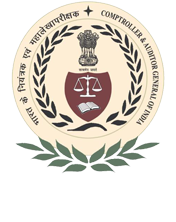Audit Reports

Indirect Tax
Report No. 11 of 2014 - Performance Audit on Indian Customs Electronic Data Interchange System of Union Government, Department of Revenue-Indirect Taxes,Customs
Overview
The Indian Customs Electronic Data Interchange System (ICES) was developed as the core ICT system through which import and export documents {Bills of Entry, Shipping Bills, Import General Manifests (IGMs) and Export General Manifests (EGMs)} were to be processed. The main objectives of ICES were to ensure uniformity of assessments and valuations; ensure faster processing; reduce transaction cost, interaction of the Trade with government agencies, and provide quick and accurate import/export statistics for compilation by the DGC&IS.
ICES Ver 1.0 was initially launched as a Pilot project at Delhi Custom House in 1995. It was gradually made operational at other custom houses from 1997. Audit reviewed the Customs EDI System for the first time in the year 2000-01 and reported its findings in CAG's Report No. 10 of 2002 (Customs). The review focused on procurement and software development. ICES 1.0 was again reviewed in the year 2008, primarily to verify whether it had mapped the processes and provisions of the Customs Act and allied rules and regulations, effectively.
The audit review had revealed deficiencies in (i) system design leading to incomplete capture of data resulting in manual interventions, (ii) incorrect mapping of business rules, (iii) absence of appropriate input controls, (iv) absence of validation between 'customs tariff heading' and the serial number of the notification for ensuring correct availing of exemption notification, (v) absence of validation of licence and scheme code, (vi) inadequate change management controls and (vii) wastage of resources as the data available in the system was not utilised and manual processes were resorted instead. In all, five recommendations designed to address the system deficiencies were included in the report (Report No. PA 24 of 2009-10 Customs). The Ministry accepted all the recommendations.
Download Audit Report
-
Report No. 11 of 2014 - Full Report
 (0.62 MB)
Download
(0.62 MB)
Download
-
Index
 (0.20 MB)
Download
(0.20 MB)
Download
-
Preface
 (0.21 MB)
Download
(0.21 MB)
Download
-
Executive Summary
 (0.23 MB)
Download
(0.23 MB)
Download
-
Recommendations
 (0.22 MB)
Download
(0.22 MB)
Download
-
Chapter 1 - Introduction
 (0.25 MB)
Download
(0.25 MB)
Download
-
Chapter 2 - Systemic Issues
 (0.33 MB)
Download
(0.33 MB)
Download
-
Chapter 3 - Functionality of the Application
 (0.38 MB)
Download
(0.38 MB)
Download
-
Chapter 4 - Other issues of operational malfuction
 (0.25 MB)
Download
(0.25 MB)
Download
-
Glossary
 (0.23 MB)
Download
(0.23 MB)
Download
-
Annexures
 (0.29 MB)
Download
(0.29 MB)
Download

